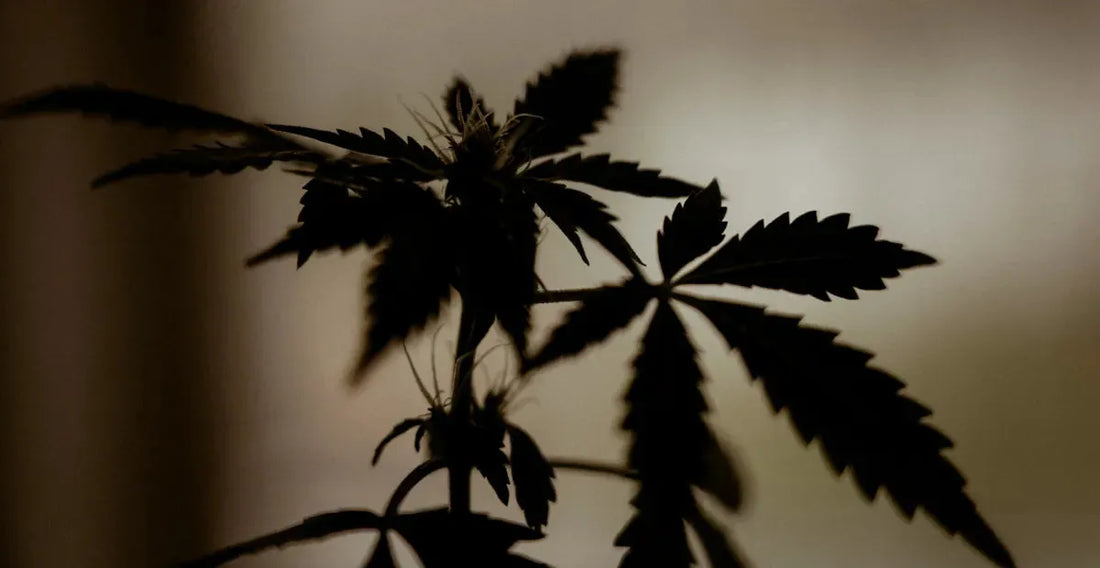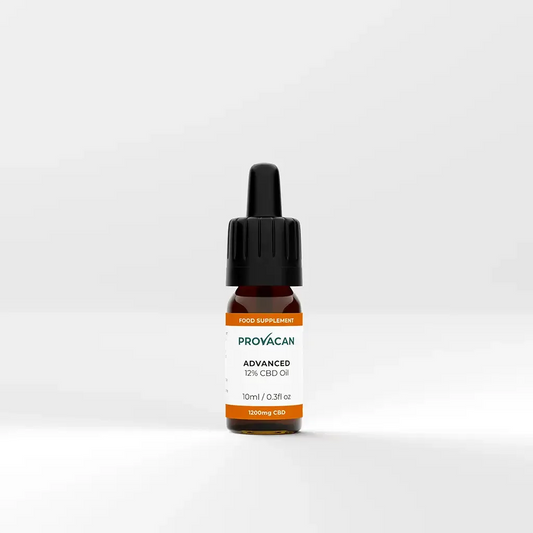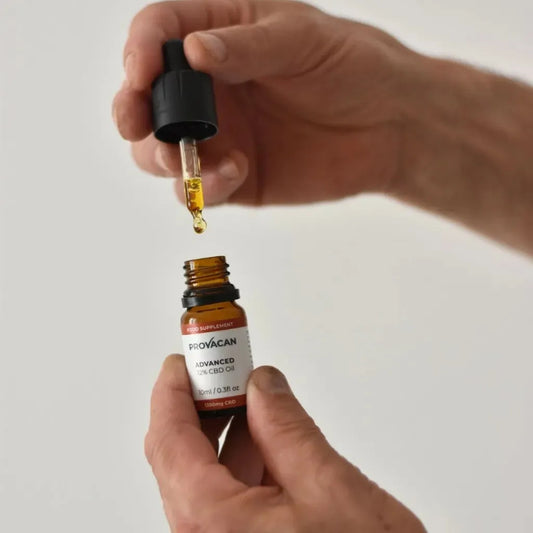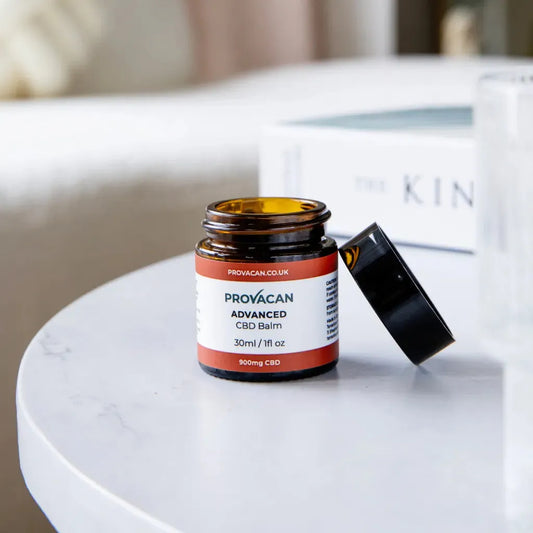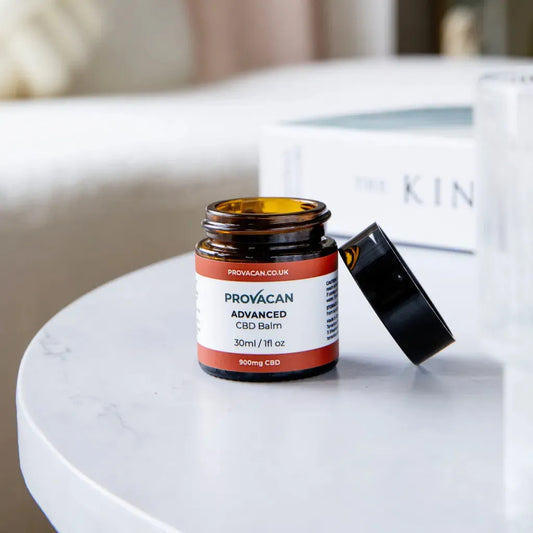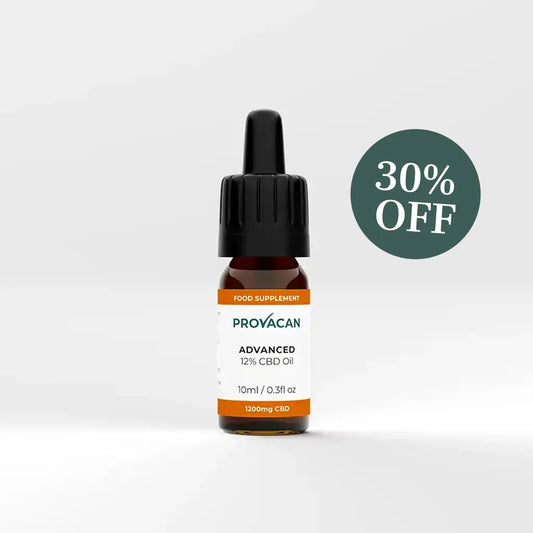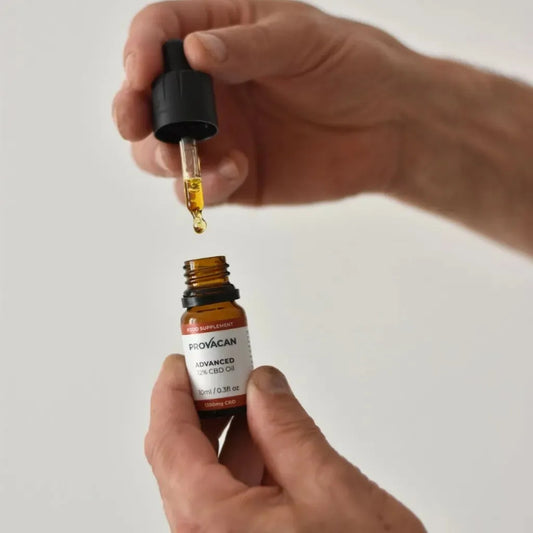Key Takeaways:
- CBD offers therapeutic benefits without the psychoactive effects of THC. CBD is non-psychoactive and has gained popularity for its potential health benefits, making it a desirable option for individuals seeking relief without the "high" associated with cannabis.
- THC is known for its psychoactive properties and euphoric effects. Unlike CBD, THC produces psychoactive effects that contribute to the feeling of being "high."
- The different effects of CBD and THC products. Exploring the distinctions between the two to help you make the best choices based on your needs and preferences.
CBD, known for its non-psychoactive properties, has gained popularity for its potential therapeutic benefits without the "high" commonly associated with cannabis use. On the other hand, THC is famous for its psychoactive effects, which contribute to the euphoric sensation often experienced by recreational users. Understanding the distinctions between CBD and THC, from their chemical structures to their impact on the body, is crucial for individuals seeking to utilize these compounds for various purposes, from managing chronic pain to reducing anxiety symptoms.
In this comprehensive guide, our experts at Provacan will uncover the fundamental contrasts between CBD and THC, exploring their distinct effects, potential uses, and legal considerations. Whether you are new to the world of cannabinoids or seeking to enhance your knowledge, this article will equip you with the essential information needed to navigate the CBD vs. THC landscape effectively.
An Overview: CBD And THC
CBD (cannabidiol), a non-psychoactive component of cannabis, has gained popularity for its potential therapeutic benefits without the euphoric "high" commonly associated with THC (tetrahydrocannabinol). Research suggests that CBD may help with anxiety, pain relief, inflammation, and various other health conditions. The World Health Organization reports that CBD exhibits a good safety profile and has no potential for abuse or dependence.
On the other hand, THC is the psychoactive compound in cannabis responsible for the euphoric effects that users experience. It binds to cannabinoid receptors in the brain, leading to feelings of euphoria, relaxation, altered senses, and appetite stimulation. While THC also has potential therapeutic properties, its psychoactive nature makes it less suitable for those seeking relief without the intoxicating effects.
CBD influences various receptors, such as serotonin and vanilloid receptors, to regulate pain perception and mood. THC primarily interacts with the brain's cannabinoid receptors, altering neurotransmitter release and affecting cognitive functions.
The Science Behind CBD And THC
CBD and THC are two of the most well-known cannabinoids found in the cannabis plant. While both have therapeutic properties, they interact with the body in different ways due to their distinct chemical structures.
CBD
According to a review published in Frontiers in Neuroscience, CBD interacts with the endocannabinoid system (ECS) by activating various receptors. The ECS plays a crucial role in regulating functions such as pain perception, mood, and immune response.
Effects: Studies, including one from the Journal of Clinical Investigation, have suggested that CBD may have anti-inflammatory, anti-anxiety, and neuroprotective properties. Additionally, CBD is non-psychoactive, meaning it does not produce a "high."
THC
Research in the Journal of Pain and Symptom Management highlights THC's ability to bind to cannabinoid receptors in the ECS, particularly the CB1 receptor. This interaction is responsible for the psychoactive effects associated with THC consumption.
Effects: THC is known for its euphoric and pain-relieving effects. However, its psychoactive nature can lead to impairments in cognitive function and memory. This is why THC is often regulated more strictly than CBD.
Legal Considerations
The legality of CBD and THC products varies greatly depending on the country and even within different states or regions.
In the United Kingdom, CBD is legal as long as it contains less than 0.2% THC. This low THC content ensures that CBD products do not produce any psychoactive effects. The majority of CBD products available in the UK are derived from industrial hemp, which is a variety of cannabis that naturally contains low levels of THC.
On the other hand, THC is a controlled substance in the UK under the Misuse of Drugs Act 1971. Products containing THC are illegal unless they are prescribed by a doctor for medical use. In recent years, some exceptions have been made for specific medical conditions that can benefit from THC treatment, but these cases are closely monitored and regulated.
Medical Benefits Of CBD And THC
CBD
Pain Management: CBD is well-known for its analgesic properties, making it a promising option for managing both acute and chronic pain. Studies have indicated that CBD can help alleviate pain associated with conditions such as arthritis, multiple sclerosis, and neuropathic pain.
Anxiety Relief: Another significant benefit of CBD is its anxiolytic properties. Research suggests that CBD may help reduce symptoms of anxiety disorders, such as generalized anxiety disorder, social anxiety disorder, and post-traumatic stress disorder (PTSD).
Anti-Inflammatory Effects: CBD has been recognized for its anti-inflammatory properties, which can be beneficial in conditions characterized by inflammation, such as inflammatory bowel disease (IBD) and arthritis.
THC
Pain Relief: Like CBD, THC also exhibits pain-relieving properties. It is particularly effective in managing neuropathic pain, often associated with conditions like multiple sclerosis and fibromyalgia.
Nausea and Vomiting: THC has gained recognition for its antiemetic properties, making it a valuable option for individuals undergoing chemotherapy or suffering from conditions that induce nausea and vomiting.
Appetite Stimulation: One of the well-known effects of THC is its ability to stimulate appetite. This can be particularly beneficial for individuals experiencing appetite loss due to medical conditions.
Comparing Psychoactive Properties
THC is well-known for its psychoactive properties, which is what produces the "high" commonly associated with marijuana use. This is because THC binds directly to the CB1 receptors in the brain, triggering a release of dopamine and creating a euphoric sensation.
On the other hand, CBD is not psychoactive, meaning it does not produce the same "high" effect as THC. CBD actually works in an indirect way with the endocannabinoid system, influencing receptors such as CB1 and CB2 to help regulate various bodily functions without causing intoxication. This makes CBD an attractive option for those looking to experience the potential benefits of cannabis without the mind-altering effects.
While THC can have psychoactive effects that may not be suitable for everyone, CBD is generally well-tolerated and does not impair cognitive function, making it a popular choice for those seeking symptom relief without the high.
Product Forms and Consumption Methods
CBD Products
- CBD Oils/Tinctures: One of the most popular forms of CBD products, oils and tinctures are taken sublingually, allowing for quick absorption into the bloodstream.
- CBD Capsules: Ideal for those who prefer a precise dosage, CBD capsules offer a convenient and discreet way to consume CBD.
- CBD Gummies: CBD gummies provide a tasty way to incorporate CBD into your daily routine.
- CBD Topicals: Creams, lotions, and balms infused with CBD are excellent for localized relief, targeting specific areas of discomfort.
- CBD Vapes: Vaping CBD allows for quick absorption through the lungs, providing fast-acting effects.
THC Products
- THC Flower: Dried cannabis flower is commonly smoked or vaporized, offering immediate effects.
- THC Edibles: Similar to CBD edibles, THC-infused treats offer a discreet and enjoyable way to consume THC.
- THC Concentrates: Concentrates like shatter, wax, and oils are highly potent forms of THC, best suited for experienced users.
- THC Topicals: Like CBD topicals, THC-infused creams and balms can provide localized relief for muscle aches and pains.
- THC Tinctures: Tinctures containing THC are another option for precise dosing, offering flexibility in consumption.
When selecting a product form and consumption method, consider factors such as desired onset time, duration of effects, and personal preferences. Experimenting with different products can help you find the ideal option that fits your lifestyle and wellness goals.
Read also:
Frequently Asked Questions on CBD vs. THC
What is CBD?
CBD, or cannabidiol, is a naturally occurring compound found in cannabis plants. Unlike its counterpart THC, CBD is not psychoactive, meaning it does not produce a "high." It's widely used for its potential therapeutic benefits, including stress relief, pain reduction, and improvement in sleep quality, among others.
What is THC?
THC, or tetrahydrocannabinol, is the main psychoactive compound in cannabis plants responsible for producing the "high" sensation. It interacts with the body's endocannabinoid system and can influence mood, behavior, and cognition. THC is often used for its medicinal properties, as well as for recreational purposes.
What are the main differences between CBD and THC?
THC induces psychoactive effects or a "high," while CBD does not. Additionally, they interact differently with the body's cannabinoid receptors and thus have differing impacts on the body, with CBD being sought after for its potential therapeutic uses without intoxication and THC being used both medicinally and recreationally for its psychoactive properties.
Is CBD legal?
In the UK, CBD is legal as long as it contains less than 0.2% THC and is derived from an industrial hemp strain that is EU-approved. However, laws regarding CBD can vary greatly by country, so it's crucial to check the local regulations in your area.
Is THC legal?
In the UK, THC is classified as a controlled substance under the Misuse of Drugs Act 1971 and is illegal to possess, sell, or distribute without authorization. Some exceptions exist for medicinal cannabis products prescribed by a specialist doctor. Laws vary internationally, with some regions having more permissive approaches to THC.
Can CBD get you high?
No, CBD cannot get you high. Due to its non-psychoactive nature, CBD does not produce the "high" associated with THC. This makes it a suitable option for those seeking the potential benefits of cannabis without the psychoactive effects.
Can THC get you high?
Yes, THC can get you high. It is the compound in cannabis responsible for the psychoactive effects or the sensation of being "high." The intensity of the high can vary based on the dose and the user's tolerance.
What are the benefits of using CBD?
CBD is celebrated for its potential to provide relief from various conditions without the psychoactive effects of THC. Benefits reported include alleviation of anxiety, depression, pain, inflammation, and improving sleep.
What are the benefits of using THC?
THC is primarily known for its psychoactive effects but also has potential medicinal benefits. It has been reported to help with conditions such as pain, muscle spasticity, glaucoma, insomnia, and to enhance appetite.
Can you use CBD and THC together?
Yes, CBD and THC can be used together. Some studies suggest that when used together, they can produce a synergistic effect known as the "entourage effect," potentially enhancing their therapeutic benefits while mitigating undesirable side effects, like anxiety from THC.

